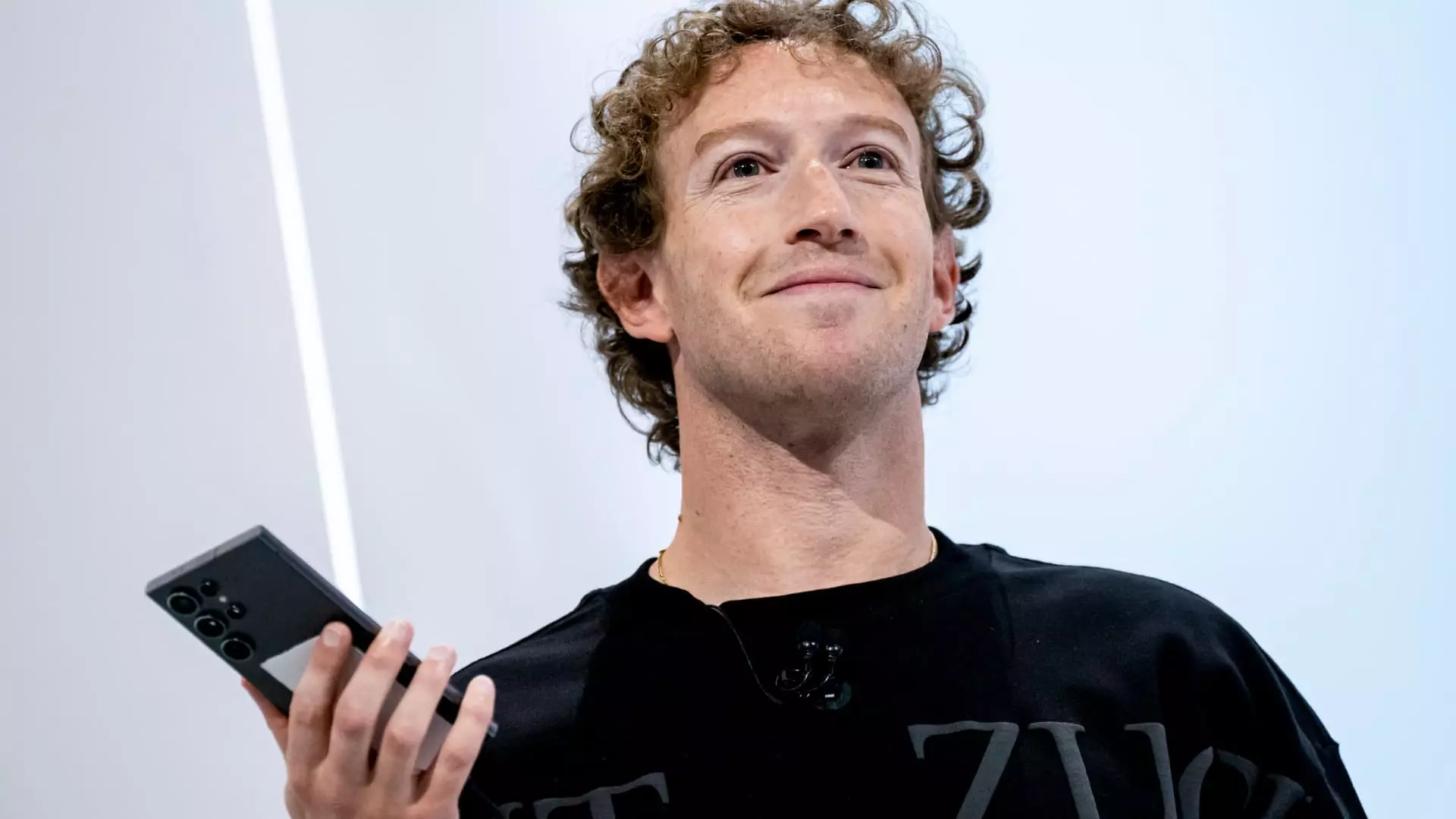The tech landscape is characterized by fierce competition among the industry’s key players, and at its center is the ongoing rivalry between Meta CEO Mark Zuckerberg and Apple. Recently, during an episode of the “Joe Rogan Experience,” Zuckerberg offered a scathing criticism of Apple, calling out its stalling innovation and arbitrary policies. These remarks, chock-full of insight into the psyche of a competitor, expose tension simmering beneath the surface of two of tech’s most influential names.
Zuckerberg acknowledged the iPhone’s transformative role in making smartphones accessible to the masses, a feat undeniably spearheaded by Apple co-founder Steve Jobs. However, he laments that the product’s evolution has stagnated in recent years. He suggests that the latest iterations of the iPhone have not brought meaningful advancements, leading to consumer reluctance in upgrading their devices. This stagnation marks a significant departure from the innovative spirit originally embodied by Apple, signaling a phase where the company seems content to maintain its existing market dominance rather than push boundaries.
Critically, Zuckerberg’s argument rests on the assertion that Apple’s financial success stems not from groundbreaking innovations, but rather from exploiting its existing ecosystem. With a 30% fee levied on developers and strategic moves to expand its peripheral empire, Apple has found a way to optimize profits while seemingly neglecting its creative obligations as a tech pioneer. The tech community is left questioning whether Apple’s approach is one of genuine progress or merely an opportunistic strategy bolstered by market position.
An interesting facet of Zuckerberg’s critique pertains to Apple’s perceived commitment to consumer privacy. While Apple often positions itself as a champion of privacy, Zuckerberg argues that this PR strategy serves as a smokescreen for their restrictive ecosystem. He contends that Apple utilizes security concerns as an excuse to limit compatibility with external products, thereby undermining the potential for innovation that could arise from open platforms. According to him, bolstering security protocols and improving encryption would adequately address privacy issues, allowing for greater interoperability in the market.
In this context, Zuckerberg’s comments shed light on a crucial debate: how do tech giants balance consumer privacy with fostering a vibrant ecosystem of third-party developers? The tension between Apple’s stringent control policies and a more collaborative approach mirrors broader questions regarding competition in the tech industry.
Not stopping at general criticisms, Zuckerberg directed specific remarks toward Apple’s recent foray into virtual reality with the Vision Pro headset. While acknowledging the product’s ambition, he highlighted its disappointing performance in terms of sales. He tactfully noted that Apple sometimes struggles in its initial product launches, encouraging a wait-and-see attitude towards future iterations. However, the sentiment lingered that the first version of the headset failed to impress, further emphasizing an era of lackluster innovation for Apple.
Zuckerberg’s critical stance towards Apple’s Vision Pro is particularly noteworthy in light of Meta’s own pursuit of the VR market through its Meta Quest headsets. This battle for supremacy in the immersive tech space highlights the broader implications of their rivalry—not merely as competing companies but as representatives of differing philosophies about the direction of technology.
What emerges from Zuckerberg’s comments is a call for both Apple and competitors like Meta to rekindle the flames of innovation that have propelled the tech industry to its heights. The future seems to hinge on the ability and willingness of these giants to embrace risk, foster creativity, and encourage an open dialogue about the rules that govern their ecosystems. The looming question remains: Are companies like Apple satisfied with their current achievements, or are they prepared to re-enter a mode of radical innovation once more?
Zuckerberg’s critique serves not only as an attack against a rival but also as a rallying cry for the tech industry to continue its legacy of innovation. The road forward will require agility and imagination—qualities that have historically defined the most successful tech endeavors. As the industry watches, how will Apple respond? Will it reclaim its innovative edge or continue on its current trajectory? The answers could shape the next chapter of technology in profound ways.

